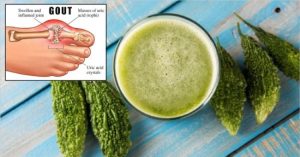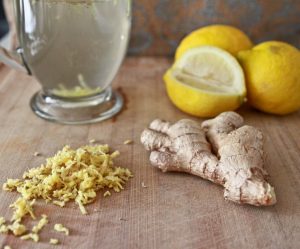Are you struggling to lose weight and maintain a healthy diet? You may have a toxic fatty acid that blocks weight loss.
Here's how a simple “Ice Hack” speed up my fat loss and helped me restore my health, watch now.

The thyme plant isn’t just another spice that flavors your culinary dishes. It’s also a medicinal herb with powerful medicinal properties that has numerous health benefits. In fact, thyme tea is helpful for a great number of diseases, it helps you cleanse respiratory infections, promote the fight against minor discomforts, and prevent infections.
In other words, thyme is abundant in vitamins A, C, E, and K, as well as minerals like iron, potassium, calcium, and phosphorus. Therefore, its properties stimulate the body’s protection against numerous diseases, such as flu, colds, bronchitis, and sinusitis.
Additionally, this herb offers numerous antifungal and antibacterial properties. So, it’s especially beneficial in destroying strains of bacteria such as E. coli, Salmonella typhimurium, Staphylococcus aureus, and Klebsiella pneumonia.
Here’s how to prepare the thyme tea and protect yourself against flu, viruses, and respiratory infections:
- Put one teaspoon of dried thyme in a mug and pour boiling water over it. Cover the cup and leave the water to infuse the thyme for 10 minutes. Next, strain the leaves. Then, add a teaspoon of honey and a bit of lemon juice, in order to enhance the taste and boost its nutritional value.
You should drink this tea 2-3 times a day in order, to strengthen your immune system and boost your overall health.
Here are another 10 powerful health benefits of thyme:
1. Reduces Blood Pressure
Thyme tea is extremely beneficial in the treatment of hypertension. Its antioxidants have the ability to prevent cardiovascular diseases, lower cholesterol levels, and maintain healthy blood pressure levels.
2. Food Poisoning
Food poisoning occurs when you swallow food that contains bacteria, parasites, and toxic germs. Therefore, thymol and carvacrol, compounds found in thyme, successfully fight these symptoms and destroys the bacteria causing the infection.
3. Common Cold and Flu
Thyme has powerful antiviral and antibiotic properties which, makes it a potent natural remedy in treating respiratory infections. It naturally treats symptoms of cold, coughing, and acts as a natural expectorant that ejects excess mucus and helps soothe your throat.
4. Anxiety
This herb is very effective at soothing stress and relieving anxiety. All you have to do is to put several drops of thyme essential oil on a tissue and inhale deeply to relieve anxiety and ease the pressure.
5. Strep Throat
Thyme also reduces muscle spasms and prevent coughing, which often causes a sore throat. To soothe the strep infection, drink a mouthful of warm thyme tea and gargle for about 2 minutes.
6. Acne
This healthy herb is also known as an all-natural solution to oily skin and acne breakouts. Just, dip a cotton ball in thyme tea, and place it on the acne. The solution is also quite effective in killing off the Propionibacterium acnes strain, which often leads to pimples, pustules, whiteheads, and acne cysts.
7. Diarrhea
Since thyme tea is pretty effective on food poisoning, it can also prevent diarrhea caused by contaminated food. Additionally, it fights symptoms of colitis and helps relieve a number of digestive and gastrointestinal problems.
8. Bronchitis
Studies have found that drinking thyme tea strengthens your respiratory system. Therefore, thyme is recommended among patients with acute bronchitis in order, to alleviate coughing.
9. Allergies
As said before, thyme improves your respiratory system and prevents disorders, like asthma, allergies, lung infections, and blocked airways as a result of its antispasmodic properties.
10. Yeast and Fungal Infections
The thyme herb has antifungal and antibacterial properties that fight fungal pathogens that can cause tuberculosis and other lung diseases.
Precautions When Using Thyme:
If you are taking blood clotting medications or you are 2 weeks before surgery you should avoid this tasty herb. Since in some individuals it can cause allergies. Also avoid it if you are at risk of hormone-sensitive conditions like breast cancer, ovarian cancer, uterine cancer, or endometriosis.
Otherwise, you can always add thyme to numerous foods in order to enhance their flavoring or drink as a tea on a daily basis.
Source: healthyandnaturalworld.com











